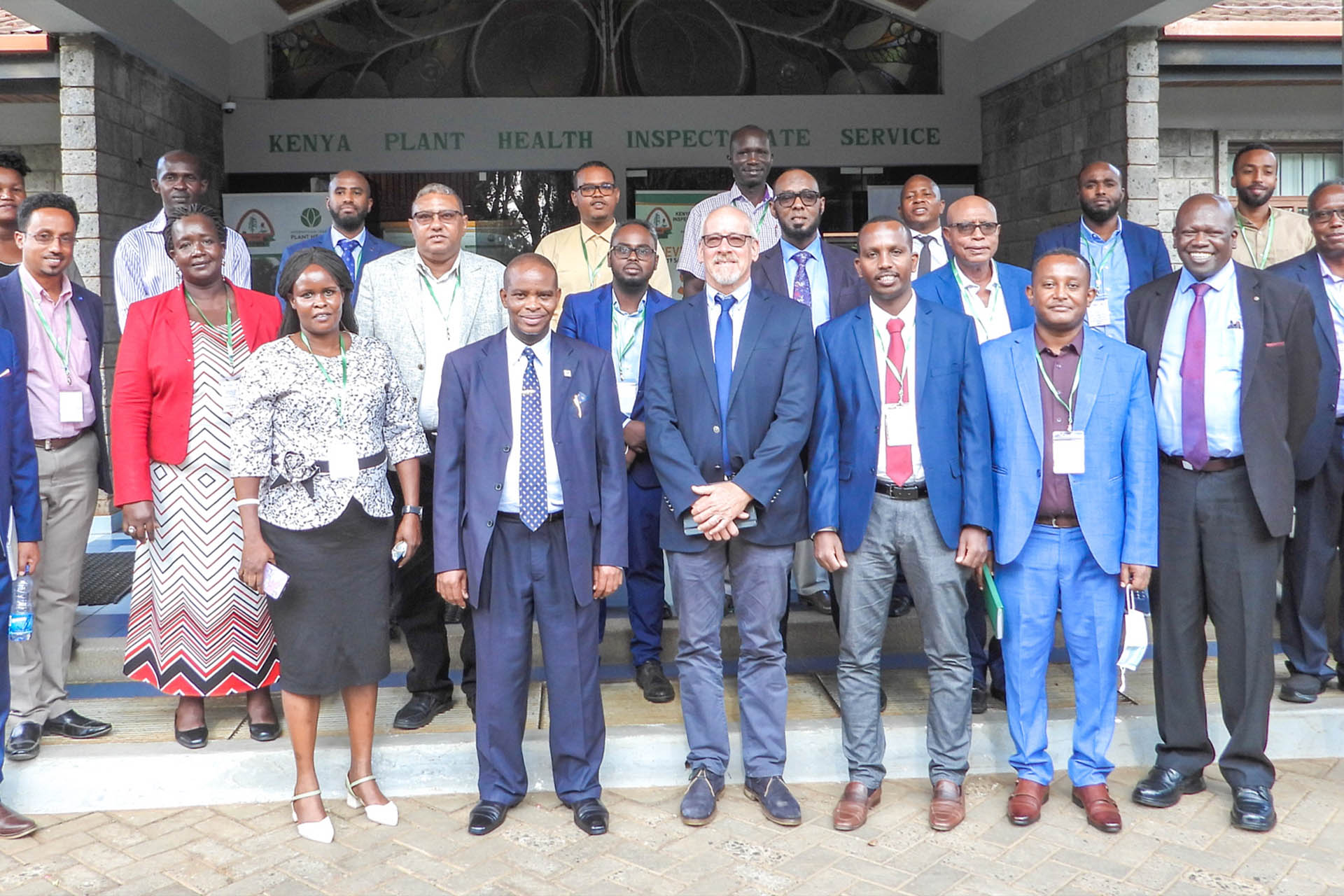February 28, 2022 (Nairobi, Kenya): The Intergovernmental Authority on Development in partnership with Seed Systems Group (SSG) today held a workshop under the Building Back Better Rural Livelihoods Recovery Initiative for the Greater Horn of Africa (HoA) in Nairobi as a way to launch an exchange visit for national subject matter experts and policy makers from Djibouti, Eritrea, Somalia and South Sudan to Kenya.
The Seed Systems Group, through the financial support of IFAD International Fund for Agricultural Development, is working with IGAD to implement the regional component of ‘Building Back Better: Rural Livelihoods Recovery Initiative for the Greater Horn of Africa’. The project aims to address the farm input needs of the most vulnerable farmers and pastoralists of the four countries.
In his opening speech, Dr Mohyeldeen El-Taha, Programme Manager for Agriculture & Food Security at IGAD Agriculture and Environment Division, said: “The Building Back Better: Rural Productivity and Resilience Initiative for the Greater Horn of Africa project initiated by The Seed Systems Group has been a timely intervention that will enable small holder farmers to progressively adopt higher-yielding, climate-resilient seeds and allow them to increase their crop yields and improve their livelihoods.”
Several field visits will be carried out, notably in Kitale and Kiboko in Kenya. Other locations to visit during the four-day field mission will include Kenya Plant Health Inspectorate Service (KEPHIS) and Kenya Agricultural and Livestock Research organization (KALRO). The exchange visit is conducted in form of presentations of good practices and experiences by host institutions, open and mutual discussions and physical visits to seed value chain actors for demonstration which will enable visiting participants to become more aware of their own skills and capacities.
The visit will also contribute towards identifying areas of collaboration and building common understanding on the urgent need for the development and operationalisation of harmonised seed policies and practices to increase the flow of seed across the region. The participants are technical experts and policy makers in the area of seed system development at Ministries of Agriculture and private sector from four IGAD member states: Djibouti, Eritrea, Somalia and South Sudan including
Background
The IGAD region has been a minor player in the seed market due to severely underdeveloped national and regional seed systems, limited capacities, lack of adoption and implementation of harmonised regional seed regulations, standards and procedures. The seed sector at national and regional levels remains fragmented and weak and there is a limited cross-border seed trade due to the differing systems, inconsistent policies, the high costs for registering new varieties and the inadequate infrastructure that underpin the seed industry. This breakdown in the seed systems and extension networks has contributed to significant and recurrent food insecurity and loss of livelihoods in the region. Millions in the region still are food insecure caused by climate change, political and economic instability, pests’ outbreak, and conflict. Rural, small-scale farming and pastoral communities of the Greater Horn of Africa countries (Djibouti, Eritrea, Somalia, and South Sudan specifically) represent some of the most marginalised groups of people. Approximately five million farmers and agro- pastoralists in these countries without access to modern agricultural technologies face an on-going struggle to produce sufficient food exacerbated by recent floods, the outbreak of desert locust and the newly disruptive forces of COVID-19 pandemic.

